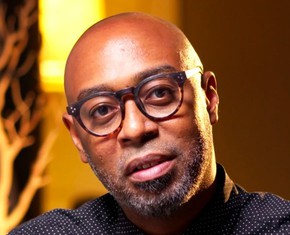The views expressed in our content reflect individual perspectives and do not represent the authoritative views of the Baha'i Faith.
We all belong to the same human family, yet all our languages create barriers between us. The Baha’i teachings ask humanity to choose an auxiliary language we all learn so the world can communicate.
In a speech he gave in Paris, Abdu’l-Baha said:
One of the great steps towards universal peace would be the establishment of a universal language. Baha’u’llah commands that the servants of humanity should meet together, and either choose a language which now exists, or form a new one.
How could this happen? According to Ethnologue, the most trusted reference work on the world’s language ecologies, approximately 7,111 languages are spoken today, but this number constantly fluctuates — and does not include dialects. Even if we were able to learn fifty languages and travel through a country such as Papua New Guinea — where a total of 840 languages are spoken — we’d still be at a loss, unable to communicate with most people.
RELATED: My Story of Diversity: 5 Countries, 7 Languages
In the rapidly-changing world of technology, advances are being made in every field, all over the world — but only a small minority can know about them if they’re not accessible in one universal language.
A universal language would help dispel the misunderstandings caused by the barriers inherent in all the many different languages spoken around the world.
The idea of a universal auxiliary language is not new, and artificially constructed languages are not a recent phenomenon. The first known constructed language was Lingua Ignota, created in the 12th century. The concept did not attract significant interest until the language Volapük was created in 1879.
Baha’u’llah, the prophet and founder of the Baha’i Faith, wrote in his Most Holy Book:
O members of parliaments throughout the world! Select ye a single language for the use of all on earth, and adopt ye likewise a common script … This will be the cause of unity, could ye but comprehend it, and the greatest instrument for promoting harmony and civilization, would that ye might understand!
Later, Baha’u’llah elaborated on this theme, instructing that this new secondary language be taught to children in schools throughout the world. When that happens, the Baha’i teachings say, all future generations would only need to learn two languages — one their own native tongue and the other, the auxiliary language which everyone could use.
When we adopt a universal auxiliary language, the Baha’i teachings say, the whole world will come to be regarded as one country, freeing the people from the necessity of acquiring and teaching many different languages.
Since the first constructed ones, dozens of new languages were invented in the late 1800s. Volapük was popular for some time and apparently had a few thousand users, but was later eclipsed by the popularity of Esperanto, which arose in 1887.
Abdu’l-Baha, Baha’u’llah’s son and successor, praised Dr. Zamenhof, the inventor of Esperanto. Regarding Esperanto, Abdu’l-Baha said in a letter published in the Baha’i magazine Star of the West:
Praise be to God, that Dr Zamenhof has constructed the Esperanto language. It has all the potential qualities of universal adoption. All of us must be grateful and thankful to him for his noble effort for in this matter he has served his fellowmen well. He has constructed a language which will bestow divine benefits on all peoples.
Since its inception Esperanto has seen wide use, and in the early days of the Faith, Baha’is were encouraged to learn it and to translate Baha’i literature into Esperanto. Many Baha’is still speak it.
Since then, several other synthetic languages, such as “Latino sine Flexione” and “Idiom Neutral” have also been put forward. Around 1887, a Delegation for the Adoption of an International Auxiliary Language was formed, consisting of 12 members, and proposed a new Esperanto-based language called Ido, which means “offspring.”
In 1894, Dr. Zamenhof, having heard a number of complaints about Esperanto, suggested a proposal for a Reformed Esperanto, with several changes that Ido also adopted. Unfortunately, the creation of Ido led to a schism between those who believed that Esperanto should be left as it was and those who believed that it had what they perceived as inherent flaws. Those who opposed change maintained that it was endless tinkering that had led to the decline of Volapük. Today, Esperanto is estimated to have between 100,000 and 2 million fluent speakers, with Ido speakers numbering between 1,000 and 5,000. Nevertheless, people have continued to work on Ido — as recently as January 2022, a new set of Ido words was approved.
Despite all this, neither language is likely to be adopted as a global universal language because Esperanto was developed by a single individual and uses the male gender by default, and Ido was developed by a small delegation of people. Also, both have their roots in the Indo-European Romance languages, with few influences or inclusions from Asian or Indigenous languages.
In the early part of the 20th century, Abdu’l-Baha explained to an audience in London how a truly universal language could come about:
The love and effort put into Esperanto will not be lost … but no one person can construct a Universal Language. It must be made by a Council representing all countries, and must contain words from different languages. It will be governed by the simplest rules, and there will be no exceptions; neither will there be gender, nor extra and silent letters. Everything indicated will have but one name.
After World War I, the quest to find an ideal constructed language lost steam, but the concept of a universal language is more necessary than ever now in this era of worldwide mass communication. Although English has been adopted as a universal language by the scientific community and has become widely used in international business, worldwide diplomacy, and many other fields, it has many issues — it is very difficult to learn and is full of contradictions and exceptions to rules.
Abdu’l-Baha taught that when we are finally able to communicate freely with the whole of humanity and understand each other’s points of view, we will associate in friendship and concord and entertain the greatest love and fellowship for each other.
RELATED: Uniting a Sustainable Humanity through a Universal Auxiliary Language
A universal language can go a long way toward making that unity, love, and fellowship blossom. It will remove religious misunderstandings, unite the East and the West in the spirit of brotherhood and love, change this world from many families into one family, and help remove ignorance and superstition. When all nations become able to utilize the latest and best thoughts of everyone in the world, collaboration at all levels will be enhanced. New discoveries will be revealed, inventions will multiply, the sciences will advance by leaps and bounds, and the scientific culture of the planet will develop along broader and more inclusive lines. A universal language, Baha’u’llah proclaimed, will even help lead to world peace:
The rulers and kings of the earth … must consider such ways and means as will lay the foundations of the world’s Great Peace amongst men. Such a peace demandeth that the Great Powers should resolve, for the sake of the tranquillity of the peoples of the earth, to be fully reconciled among themselves. .… The day is approaching when all the peoples of the world will have adopted one universal language and one common script. When this is achieved, to whatsoever city a man may journey, it shall be as if he were entering his own home.
Knowing that a universal language is coming, I pray “Please God, hasten the day!” and I am grateful!
















Comments
Sign in or create an account
Continue with Googleor